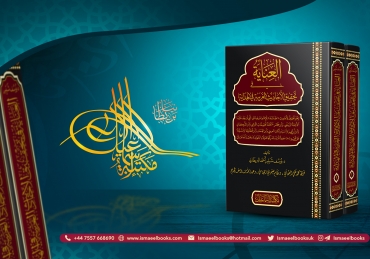No Boxed Gifts
Question
What is the Islamic ruling on the use of the phrase ‘no boxed gifts’ which has become prevalent?
بسم الله الرحمن الرحيم
Answer
It is contrary to Islamic teachings to use the phrase ‘no boxed gifts’ for several reasons.
A gift is something a person chooses to give to another person voluntarily. This phrase does not only limit the choice a person can make but is also indirectly requesting monetary gifts. An invitation to others should be sincere and free from such insinuations. This is exacerbated by the cultural expectation in many communities where it is deemed mandatory to give monetary gifts and lists are written and analysed accordingly, and referred to when returning monetary gifts. It is indeed recommended to return favours as the Prophet ﷺ would accept gifts and also return favours (Ṣaḥīḥ al-Bukhārī, 2585). However, this should not be expected or regarded as mandatory, because the very essence of gifts is that it is given voluntarily and wholeheartedly.
Exchanging gifts has been recommended in Islam. The Prophet ﷺ said,
تھادوا تحابوا
“Exchange gifts, you will love each other” (al-Adab al-Mufrad, 594).
Islam has also ordained us to appreciate all types of gifts. The Prophet ﷺ said:
یا نساء المسلمات ، لا تحقرن جارة لجارتھا ولو فرسن شاة
“O Muslim women, a neighbouress should not belittle [the gift] of her neighbouress, even if [the gift is] a goat’s hoof” (Ṣaḥīḥ al-Bukhārī, 2566; 6017).
This narration affirms that gifts, irrespective of their nature, should not be belittled or undermined. The Ḥanbalī scholar, Imām Ibn Hubayrah al-Wazīr (d. 560/1165) writes, “From the jurisprudence of this narration is that a person should not belittle a small gesture, for only that person belittles it who has less knowledge. This is because when he looks at what Allah accepts from him (referring to the quality of his deeds or the gift of the giver), it is not possible for him to belittle something that Allah has accepted” (al-Ifṣāḥ, 6: 271).
Similarly, the Prophet ﷺ said:
لو دعيت إلى ذراع أو كراع لأجبت ، ولو أهدي إلي ذراع أو كراع لقبلت
“If I were invited to [a meal of] an [animal’s] arm or a trotter, I shall accept, and if I was gifted an arm or a trotter, I shall accept.” (Ṣaḥīḥ al-Bukhārī, 2568)
It is therefore clear that to use the phrase ‘no boxed gifts’ is contrary to Islamic teachings. A person should not expect any gifts and should be content with guests not providing any gifts. Accordingly, a person should avoid stipulating any conditions or making reference to gifts and wholeheartedly accept all types of gifts.
Allah knows best
Yusuf Shabbir
5 Muḥarram 1438 / 6 October 2016
Approved by: Mufti Shabbir Ahmad Sahib
Additional queries regarding ‘no boxed gifts’
(1) Is there anything wrong with expecting gifts?
To expect gifts is contrary to the concept of giving and receiving a gift sincerely and wholeheartedly. ʿUmar (d. 23/644) (may Allah be pleased with him) narrates that the Prophet ﷺ would give him some wealth and he would say in return, “Give it to he who is in more need of it than me.” This occurred on one occasion and the Prophet ﷺ said to him:
خذه فتموله أو تصدق به وما جاءك من هذا المال وأنت غير مشرف ولا سائل فخذه وما لا فلا تتبعه نفسك
“Take it and keep it in your possession or give it in charity, and whatever comes to you from this [type] of wealth, without you being desirous or asking [for it], accept it, otherwise do not let your heart hanker after it.”
The narrator Sālim (d. 106/725) says, “Due to this, ʿAbd Allah ibn ʿUmar [d. 73/693] would not ask anyone for anything and would not return anything given to him” (Ṣaḥīḥ Muslim, 1045).
The Prophet ﷺ said:
إن هذا المال خضرة حلوة فمن أخذه بسخاوة نفس بورك له فيه ، ومن أخذه بإشراف نفس لم يبارك له فيه كالذي يأكل ولا يشبع ، اليد العليا خير من اليد السفلى
“Verily, this wealth is sweet green [like fresh fruit]. Whoever takes it with the generosity of the heart [without being desirous and expecting it], he is blessed in it, and whoever takes it with the ishrāf of the nafs (inner desire), he is not blessed in it, [and he is] like a person who eats but is not satisfied, and the upper [giving] hand is better than the lower [receiving] hand” (Ṣaḥīḥ al-Bukhārī, 1472).
The Prophet ﷺ said:
من عرض له من الرزق من غیر مسألة ولا إشراف نفس فلیتوسع به في رزقه ، فإن كان غنیا فلیؤده إلی من ھو أحوج إلیه منه
“Whoever is presented from the sustenance [something] without asking and without the ishrāf of the nafs (inner desire), he should expand his sustenance through it [and accept it], if he is rich he should give it to he who is in more need of it than him” (Musnad Ibn Abī Shaybah, 923; Musnad al-Rūyānī, 780; al-Muʿjam al-Kabīr, 18: 19).
The Prophet ﷺ said:
من بلغه معروف عن أخیه من غیر مسألة ولا إشراف نفس فلیقبله ولا یرده ، فإنما ھو رزق ساقه الله إلیه
“Whoever receives a good [thing] from his brother without asking and without the ishrāf of the nafs (inner desire), he should accept it and not reject it, for it is sustenance which Allah has brought to him.” (Musnad Aḥmad, 17936; Ṣaḥīḥ Ibn Ḥibbān, 3404; al-Mustadrak, 2363)
Ḥāfiẓ Ibn ʿAbd al-Barr (d. 463/1071) narrates in al-Tamhīd (5: 88) from Imam Aḥmad ibn Ḥanbal (d. 241/855) who was asked about the word ‘ishrāf’ (desire and expectation), he replied, “It is you saying in your heart, maybe he will send me [something].” He was asked, “Even if he did not indicate this [verbally or otherwise]?” He said, “Yes, it [ishrāf] is in the heart.” It was said to him, “This is strict.” He said, “Even if it is strict, this is how it is.” It was said to him, “What if there is a person who does not send [gifts] to me habitually, and it crosses my heart, and I say [to myself]: I hope he will send me something.” He said, “This is ishrāf. However, if it reaches you without you having thought about it and the thought [and desire] did not cross your heart, now there is no ishrāf therein. He was further asked regarding a person who receives a gift after having desired for it, what should he do? He replied that he should return the gift, although it is not necessary to do so. (Also see Fatḥ al-Bārī, 3: 337; Tafsīr al-Qurṭubī, 3: 345)
The aforementioned ḥadīths clearly indicate that expecting gifts is contrary to Islamic teachings. Therefore, to use written statements such as ‘no boxed gifts’ is contrary to Islamic teachings and falls within the remit of asking for gifts or ishrāf (inner desire). The phrase ‘no boxed gifts’ in light of the cultural expectations clearly suggests that gifts are expected and invitees feel obliged or at least strongly encouraged to provide a gift. The writing of the lists and the criticisms of those who do not provide monetary gifts or the inner grief of the inviter for not receiving a monetary gift illustrate this.
Mawlānā Aḥmad Sīdāt of Bolton narrates that the late Shaykh Islām al-Ḥaq (d. 1416/1996), the former Shaykh al-Ḥadīth of Darul Uloom Bury, once wrote a letter to him sharing his dire situation. Mawlānā Aḥmad Sīdāt sent him some money although he had not requested any assistance. Shaykh Islām al-Ḥaq returned the money and explained that he would have accepted the gift under normal circumstances; however, the gift is being returned because it has been received after sending the letter. This despite the fact that he did not request or expect the gift, and it was perfectly justifiable for him to ask for assistance or accept the gift due to his circumstances.
(2) What if someone genuinely does not want boxed gifts due to the inconvenience they cause or the possibility of them being wasted?
The choice of a gift should be left to the discretion of the giver. There is no justifiable reason to stop a giver from giving a non-monetary item as a gift if he wishes to do so. Some people may be unable to provide a monetary gift. ʿAllāmah Ibn Baṭṭāl (d. 449/1057) explains in the commentary of the aforementioned ḥadīth “O Muslim women, a neighbouress should not belittle [the gift] of her neighbouress, even if [the gift is] a goat’s hoof”: “And also if the gift is small, it is more indicative of the love, and reduces the cost, and easier for the giver as it removes the burden” (Sharḥ Ṣaḥīḥ al-Bukhārī, 7: 86). Thus, the decision to gift or not to gift and the nature of the gift should be left to the discretion of the giver, without any stipulation from the recipient. It has already been mentioned that expecting gifts in the first instance is frowned upon.
There is also an underlying assumption that all boxed gifts would create inconvenience, and the recipient has ruled out all boxed gifts accordingly. It is impossible for the recipient, or for the one expecting the gifts which in itself is wrong, to know what gifts he shall receive. We fail to see how for example the gift of perfume or the gift of Islamic books would create inconvenience. Likewise, if the recipient dislikes a gift or it is not beneficial for him, he has the right to donate it in charity or gift it to someone else, as outlined in the aforementioned narrations. There is no compulsion on a recipient of a gift to use it personally. There is therefore no reason to waste any gift. If, however, the nature of the gift is such that it is not possible to donate it in charity or gift it to someone else, and it will be wasted, a person is entitled to refuse a gift. There may also be other reasons for the refusal of a gift. However, this should be based on a valid reason and not merely because it is not a monetary gift, and does not require the stipulation of no boxed gifts.
(3) The reason why people write this is because people do not like the boxed gifts. What if someone does not like the types of boxed gifts people give?
This is precisely why the Prophet ﷺ said, as cited above: “O Muslim women, a neighbouress should not belittle [the gift] of her neighbouress, even if [the gift is] a goat’s hoof” (Ṣaḥīḥ al-Bukhārī, 2566; 6017). A person should therefore wholeheartedly accept all gifts and thereafter give it someone who can make use of it if they do not need it. Again, there is an expectation of gifts, and there is an underlying assumption that all boxed gifts will be disliked by the recipient. Both points have been addressed above. Moreover, disliking a gift is not a valid reason to belittle, undermine and reject a gift.
(4) The phrase ‘no boxed gift’ does not imply that you have to give me a monetary gift.
The phrase is explicit in that if you want to give me a gift then the only option is money. This in itself is wrong even if we accept that the phrase does not indirectly seek monetary gifts. The reality however is that the phrase is used to request and, in many cultures, to compel people to give monetary gifts. Lists are compiled of people who have provided a monetary gift and people are criticised for not providing a monetary gift or providing too little. Those who decide to provide a non-monetary gift are often ridiculed particularly if the phrase ‘no boxed gifts’ was stipulated. Even if the culture of expectation does not exist, this does not justify the usage of the phrase. There should be no direct or indirect insinuation regarding gifts and expecting gifts, as it falls within the remit of asking or ishrāf, as outlined above. Ishrāf refers to the desire and expectation of the heart as outlined above, and here an explicit written reference is being made regarding gifts. An article in the Huffington Post dated 31st March 2014 entitled “Wedding Etiquette: How Do You Ask For Cash Instead Of Gifts?” clearly affirms that the purpose of this phrase is to request monetary gifts. Furthermore, we have been made aware of an alternative phrase that has started to be used, “monetary gifts recommended”. This affirms the point that has been made thus far.
(5) People will continue to use this phrase irrespective of your article.
The role of the scholars is to highlight the Islamic perspective on any particular issue. It is for the people to decide whether to act in accordance with Islamic guidelines or not. We have already been contacted by a family who were in the process of inviting others, and informed us that they have removed this phrase from the invitation after reading the edict.
(6) I do not think the phrase ‘no boxed gifts’ means that you cannot give a non-monetary gift. It simply means that do not box it up.
This clearly is not the purpose of this phrase. An article in the Huffington Post dated 31st March 2014 entitled “Wedding Etiquette: How Do You Ask For Cash Instead Of Gifts?” clearly affirms that the purpose of this phrase is to request monetary gifts. Furthermore, we have been made aware of an alternative phrase that has started to be used, “monetary gifts recommended” which affirms the point that has been made thus far. It is worth noting that the Muslims have adopted this phrase from the non-Muslims. An article of fiction written by Vijay Mishra in 2005 affirms that the phrase ‘no boxed gifts’ is used to negate all but monetary gifts. Imitating non-Muslims in this practice is another reason why this phrase should not be used.
Allah knows best
Yusuf Shabbir
21 Muḥarram 1438 / 22 October 2016
For a related article, click on the following link.





